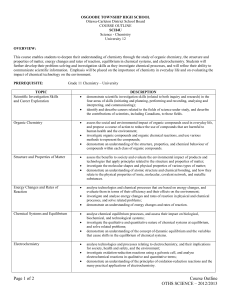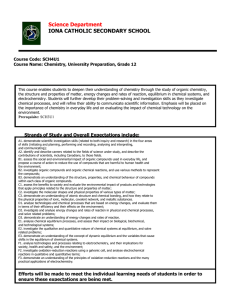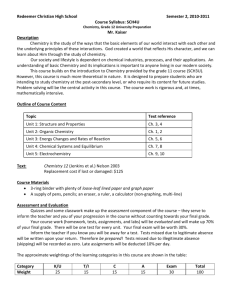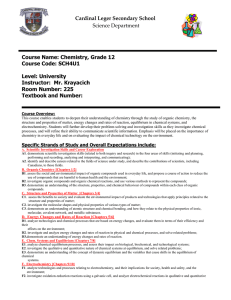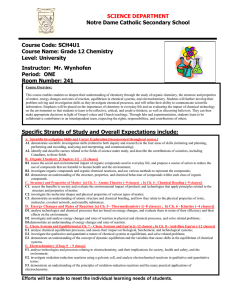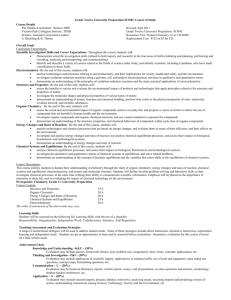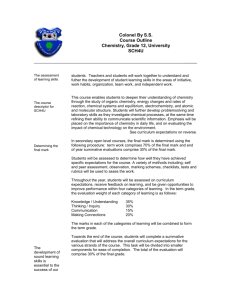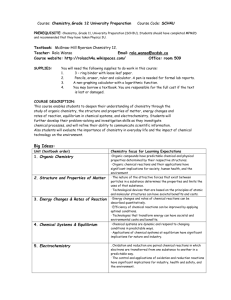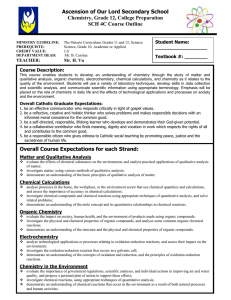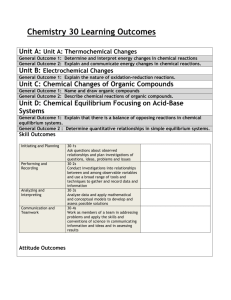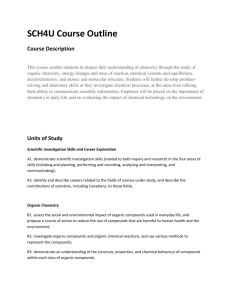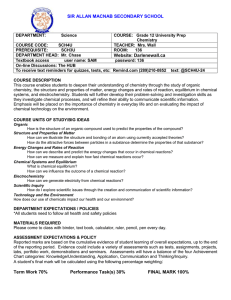Chemistry Grade 12 University Prep Course Syllabus
advertisement
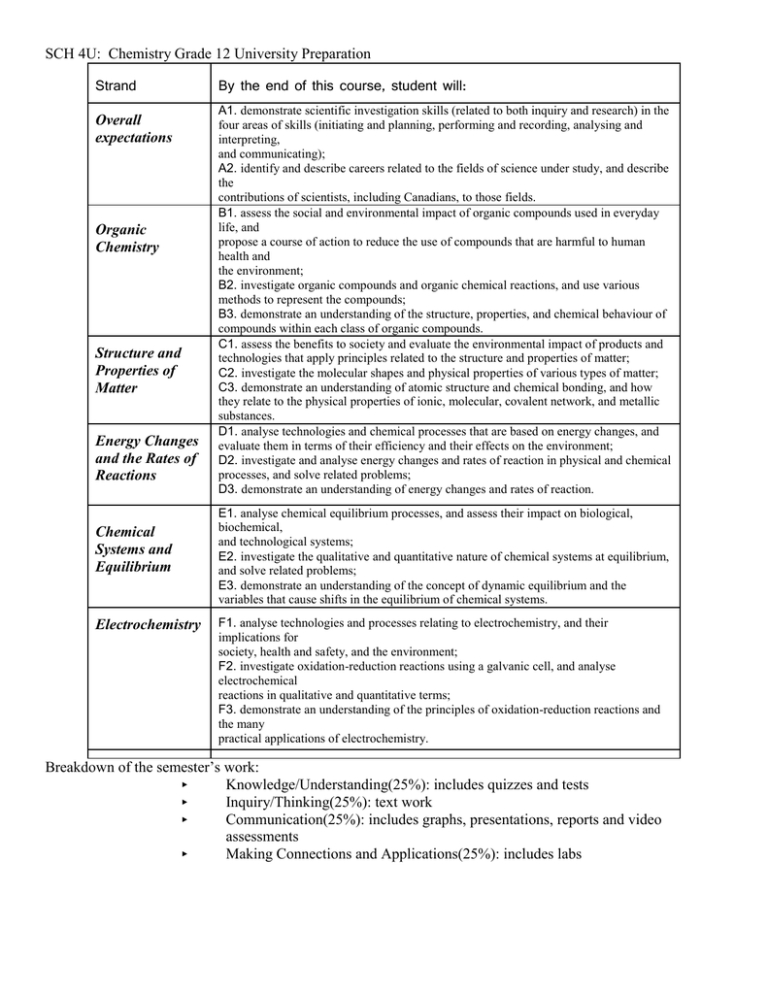
SCH 4U: Chemistry Grade 12 University Preparation Strand Overall expectations Organic Chemistry Structure and Properties of Matter Energy Changes and the Rates of Reactions Chemical Systems and Equilibrium Electrochemistry By the end of this course, student will: A1. demonstrate scientific investigation skills (related to both inquiry and research) in the four areas of skills (initiating and planning, performing and recording, analysing and interpreting, and communicating); A2. identify and describe careers related to the fields of science under study, and describe the contributions of scientists, including Canadians, to those fields. B1. assess the social and environmental impact of organic compounds used in everyday life, and propose a course of action to reduce the use of compounds that are harmful to human health and the environment; B2. investigate organic compounds and organic chemical reactions, and use various methods to represent the compounds; B3. demonstrate an understanding of the structure, properties, and chemical behaviour of compounds within each class of organic compounds. C1. assess the benefits to society and evaluate the environmental impact of products and technologies that apply principles related to the structure and properties of matter; C2. investigate the molecular shapes and physical properties of various types of matter; C3. demonstrate an understanding of atomic structure and chemical bonding, and how they relate to the physical properties of ionic, molecular, covalent network, and metallic substances. D1. analyse technologies and chemical processes that are based on energy changes, and evaluate them in terms of their efficiency and their effects on the environment; D2. investigate and analyse energy changes and rates of reaction in physical and chemical processes, and solve related problems; D3. demonstrate an understanding of energy changes and rates of reaction. E1. analyse chemical equilibrium processes, and assess their impact on biological, biochemical, and technological systems; E2. investigate the qualitative and quantitative nature of chemical systems at equilibrium, and solve related problems; E3. demonstrate an understanding of the concept of dynamic equilibrium and the variables that cause shifts in the equilibrium of chemical systems. F1. analyse technologies and processes relating to electrochemistry, and their implications for society, health and safety, and the environment; F2. investigate oxidation-reduction reactions using a galvanic cell, and analyse electrochemical reactions in qualitative and quantitative terms; F3. demonstrate an understanding of the principles of oxidation-reduction reactions and the many practical applications of electrochemistry. Breakdown of the semester’s work: Knowledge/Understanding(25%): includes quizzes and tests Inquiry/Thinking(25%): text work Communication(25%): includes graphs, presentations, reports and video assessments Making Connections and Applications(25%): includes labs
